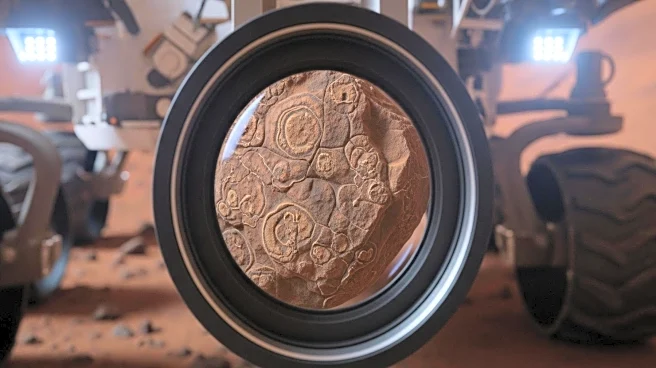What's Happening?
A study co-authored by Texas A&M University geologist Dr. Michael Tice has identified potential biosignatures in Martian rocks examined by NASA's Perseverance rover. The rocks, located in Jezero Crater's Bright Angel formation, contain organic carbon and minerals associated with microbial metabolisms. These findings suggest the possibility of ancient microbial life on Mars.
Why It's Important?
The discovery of potential biosignatures is a significant step in the search for life beyond Earth. If confirmed, these findings could reshape our understanding of Mars' history and its ability to support life. The study highlights the importance of returning Martian samples to Earth for detailed analysis.
What's Next?
Perseverance has collected a core sample from the Bright Angel formation, prioritized for return to Earth in a future mission. Analyzing this sample with advanced instruments could provide definitive evidence of past life on Mars, furthering our understanding of the planet's habitability.










